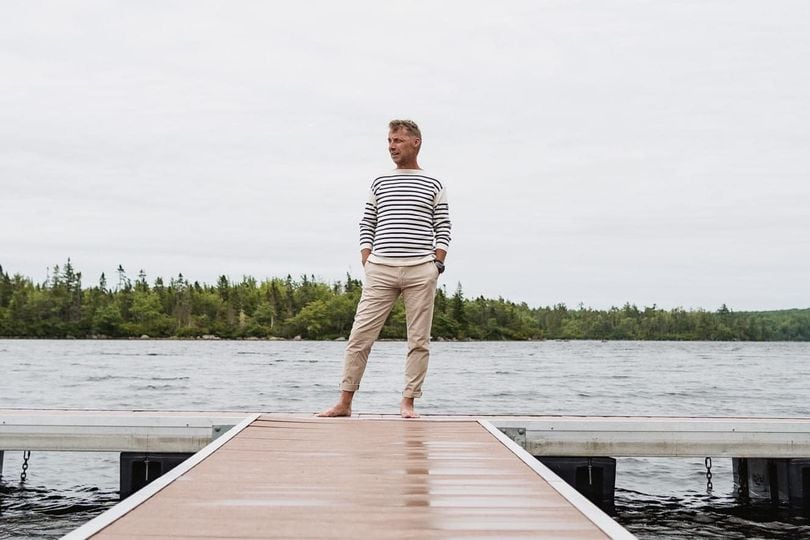Awareness, proper diagnosis the goal for Whitby mental health advocate after board appointment
Published July 18, 2024 at 10:19 am

Six years ago Mike Shoreman was diagnosed with Ramsay Hunt Syndrome, a rare and debilitating variation of shingles that affects the facial nerves, causing facial paralysis and hearing and balance problems.
In Shoreman’s case, it meant an end to his career as a paddleboard coach and led to depression and a mental health breakdown.
Told he would never walk again, let alone get on a paddleboard, Shoreman overcame his fears, assembled a crack team of people who believed in him and crossed all five Great Lakes on a paddleboard in a single memorable summer two years ago.
He then transitioned from paddleboarder to mental health advocate and travelled the country taking about mental health issues and suicide prevention, especially involving young people, as well as speaking to organizations about corporate wellness and resilience.
This week Shoreman’s arc came full circle when he was asked to join the Board of Directors of the Ramsay Hunt Syndrome Foundation, an American organization founded to promote patient and physician education to help prevent misdiagnosis and ensure proper treatment.
“I am thrilled to announce my appointment,” said Shoreman, who was misdiagnosed himself (“I thought I had a stroke”), with that uncertainty leading to his mental health breakdowns, including an attempt to take his own life. “I begin the official role this August and look forward to contributing to the organization, its mission and the patients they serve.”
“I hope this brings more awareness to healthcare providers so they can spot signs early and patients can receive the care and treatment they need and deserve.”
A lot has happened in the past six years to Shoreman, with the Ramsay Hunt Syndrome Foundation appointment just the latest in a long list of accolades.
Since the epic five-lake crossing in 2022, Shoreman won a Speaker Slam competition; became a Marg Starzynski Mental Health Leadership Award recipient; was honoured by Rotary International as a Paul Harris Fellow; was named the Great Lakes Changemaker of the Year from the Council of the Great Lakes Region; was given a honourary diploma by Loyalist College; and had his paddleboard hoisted to a place of honour at the brand new Canadian Canoe museum in Peterborough.

Mike Shoreman with the late Hazel McCallion, the long-time Mayor of Mississauga
He also became an in-demand public speaker talking about the mental health challenges he faced along the way, with his personal journey turned into a TEDx released in the spring – at the onset of Mental Health Awareness Month – that was called a “must-see” discussion on mental health challenges in Canada.
The talk looked at statistics that show one in five Canadians are facing mental health issues and “how we can look at that in a new way” by creating widespread systems of support for those experiencing mental health challenges at work, in schools and in the community.
Support for mental health issues among school children has been especially near and dear for Shoreman. “I remember in my mental health journey, I felt very alone, and I think a lot of people do. I don’t ever want kids to feel like how I felt.”
Shoreman’s story was also turned into a documentary, When Hope Breaks Through, which created a lot of buzz on the festival circuit when it opened last fall. The film debuted locally on World Mental Health Day with a special screening at Ontario Shores Centre for Mental Health Sciences in Whitby in October.
The documentary, by Michigan filmmaker Matthew Wagner, is the inspiring story of Shoreman and the mental health crisis in Canada and beyond (including relationships with our own mental health), as it immerses the audience in Shoreman’s multi-lake crossings and the challenges he faced both leading up to and during that history-making summer of ’22.
The secret to his success, indeed to his his survival since he was diagnosed with the disease in 2018 has been support of friends who always had his back, Shoreman said.
“I’m very fortunate to have all these amazing people in my life,” he said on the release of the film. “Everything that happened was because of people; people who believed.”






